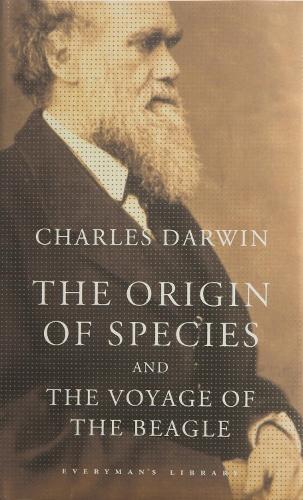
Origin Of The Species
(Hardback)
Publishing Details
Origin Of The Species
By (Author) Charles Darwin
Everyman
Everyman's Library
15th October 2003
25th September 2003
United Kingdom
Classifications
Tertiary Education
Non Fiction
575.0162
Physical Properties
Hardback
1024
Width 134mm, Height 211mm, Spine 45mm
898g
Description
' I feel most deeply that this whole question of Creation is too profound for human intellect. A dog might as well speculate on the mind of Newton! Let each man hope and believe what he can' Charles Darwin, 1862. Introduction is by Richard Dawkins Perhaps the most readable and accessible of the great works of scientific imagination, THE ORIGIN OF SPECIES sold out on the day it was published in 1859. Theologians quickly labeled Charles Darwin the most dangerous man in England, and, as the Saturday Review noted, the uproar over the book quickly "passed beyond the bounds of the study and lecture-room into the drawing-room and the public street." Yet, after reading it, Darwin's friend and colleague T. H. Huxley had a different reaction- "How extremely stupid not to have thought of that." Based largely on Darwin's experience as a naturalist while on a five-year voyage aboard H.M.S. Beagle, THE ORIGIN OF SPECIES set forth a theory of evolution and natural selection that challenged contemporary beliefs about divine providence and the immutability of species. A landmark contribution to philosophical and scientific thought, this edition also includes an introductory historical sketch and a glossary Darwin later added to the original text.
Reviews
The most important book ever written * New Scientist *
No other book has so transformed how we look at the natural world and mankind's origins * Sunday Telegraph *
Why does Darwin's theory matter now Because it is the basis of modern biology and much medical research; it provides a tool with which to understand the natural world; it offers a deeper, if imperfect, understanding of our behaviour, about where we came from and where we might be going * Observer *
Author Bio
Charles Darwin was born on February 12, 1809 in Shropshire, England. He was educated at Edinburgh University and Christ's College, Cambridge. Between 1831 and 1836 he travelled in South America aboard the H.M.S Beagle to explore the geology and natural history of the area, and published his journal of findings in 1839. His most famous book On the Origin of the Species by Means of Natural Selection, appeared in 1859 and is arguably one of the most important scientific works ever published. The theories of evolution and natural selection proposed in this book and The Descent of Man (1871) are still the subject of intense debate and scrutiny today. Charles Darwin died on 19 April, 1882 and was buried in Westminster Abbey.
